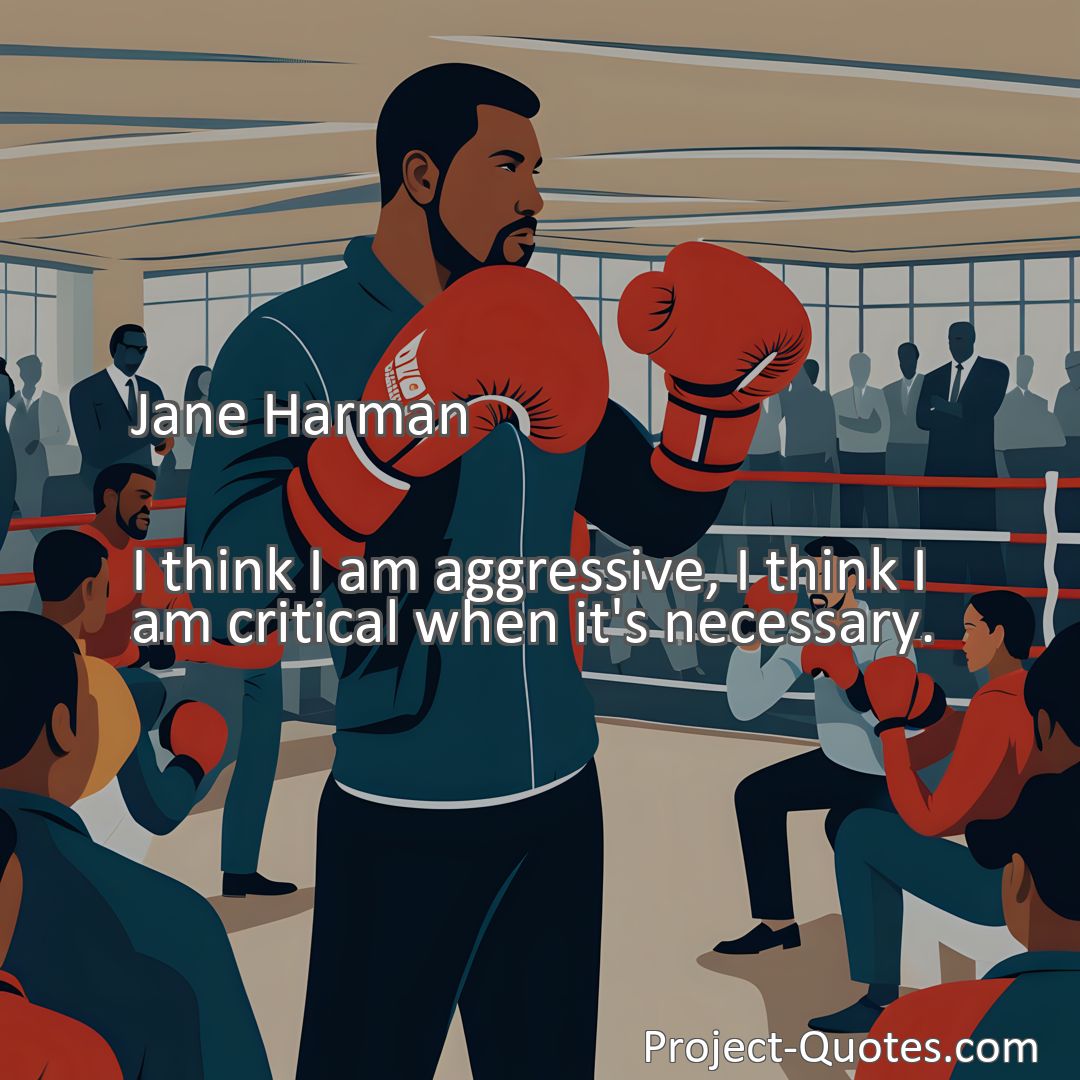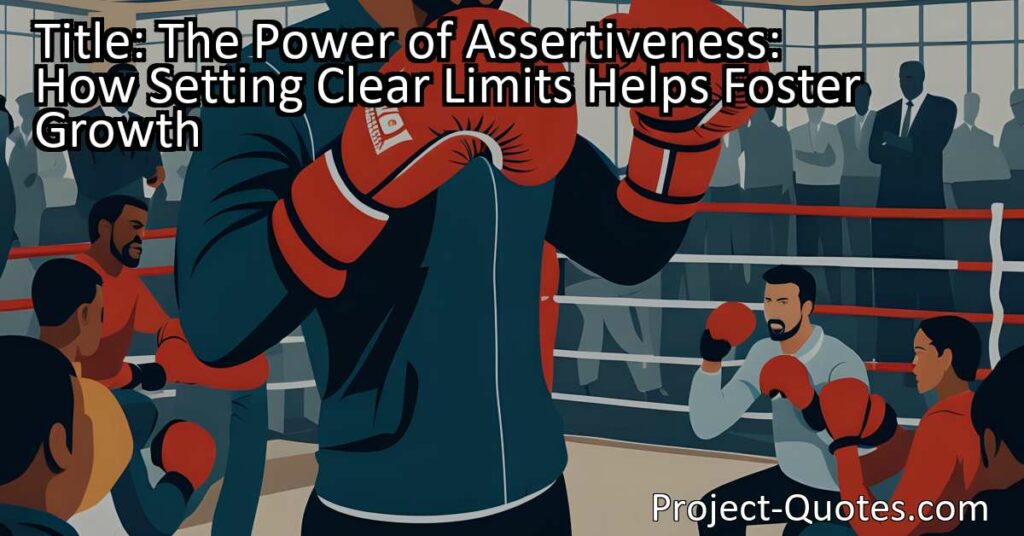I think I am aggressive, I think I am critical when it’s necessary.
Jane Harman
The Power of Assertiveness: How Setting Clear Limits Helps Foster Growth Discover the benefits of assertiveness and constructive criticism in this insightful article. By embracing assertiveness, we can establish clear boundaries, enhance self-confidence, and resolve conflicts constructively. Learn how assertiveness helps us set clear limits, leading to personal and collective growth.
Table of Contents
Meaning of Quote – I think I am aggressive, I think I am critical when it’s necessary.
Embracing Assertiveness and Constructive Criticism: The Power of Speaking Up
Introduction :
Assertiveness and constructive criticism are valuable skills that help us navigate through various aspects of life. In her insightful remark, Jane Harman, a prominent figure in politics, emphasizes the importance of being both aggressive and critical when necessary. This article will delve deeper into the idea expressed by Harman’s quote, exploring the benefits of assertiveness and constructive criticism in personal and professional settings. By understanding how to effectively voice our opinions and offer feedback, we can foster growth, improve relationships, and shape a better future for ourselves and those around us.
I. The Value of Assertiveness
Assertiveness is the ability to confidently express one’s feelings, opinions, and needs while respecting the rights of others. It is a crucial trait that enables individuals to effectively communicate and advocate for themselves. By embracing assertiveness, we empower ourselves to:
1. Establish boundaries: Assertiveness helps us set clear limits, enabling us to avoid being taken advantage of or compromising our values. Teaching young people early on how to assert their boundaries promotes healthy relationships and self-respect.
2. Enhance self-confidence: Being assertive allows individuals to take control of their lives and make decisions that align with their goals. As Harman suggests, being unafraid to assert oneself in various situations fosters personal growth and leads to increased self-confidence.
3. Resolve conflicts constructively: Assertiveness promotes open communication, leading to productive resolutions of conflicts. By calmly expressing our concerns, we build bridges rather than burning them, helping to maintain positive relationships.
II. The Power of Constructive Criticism
Contrary to popular belief, criticism can be a catalyst for growth and improvement when it is presented constructively. Constructive criticism focuses on addressing behaviors or actions rather than attacking one’s character. By embracing this form of feedback, we can:
1. Foster personal growth: Constructive criticism provides valuable insights into areas where we can enhance our skills, knowledge, or behavior. Accepting and acting upon constructive criticism allows us to learn, develop, and achieve our full potential.
2. Strengthen relationships: When delivered with empathy and respect, constructive criticism can strengthen relationships by improving communication and understanding between individuals. By being receptive to feedback, we demonstrate our commitment to personal growth and show others that we value their opinions.
3. Drive innovation and progress: Constructive criticism encourages continuous improvement by challenging the status quo. Through feedback, we can identify areas that need change, enabling us to explore alternative solutions and drive innovation in personal and professional endeavors.
III. Navigating Aggression and Criticism Responsibly
While assertiveness and constructive criticism are powerful tools, it is essential to use them responsibly to avoid unnecessary harm or conflict. Here are a few tips for navigating aggression and criticism responsibly:
1. Mindful communication: Ensure that your words are clear, respectful, and considerate of others’ feelings. Choose the appropriate time and place for discussing sensitive matters.
2. Empathy and active listening: Understand that different perspectives exist and be open to them. Practice active listening to gain a deeper understanding of others’ viewpoints and intentions.
3. Seek feedback from trusted sources: Surround yourself with individuals who genuinely want to help you grow. Seek feedback from mentors, friends, or colleagues who can provide constructive criticism in a supportive manner.
Conclusion :
In her quote, Jane Harman eloquently highlights the significance of assertiveness and critical thinking when needed. Embracing assertiveness allows us to establish boundaries, enhance self-confidence, and resolve conflicts constructively. Similarly, constructive criticism enables personal growth, strengthens relationships, and drives innovation. However, it is crucial to approach aggression and criticism responsibly by practicing mindful communication and empathy. By skillfully navigating these qualities, we can foster a supportive environment where everyone’s voices are heard, valued, and respected, leading to personal and collective growth.
I hope this quote inspired image brings you hope and peace. Share it with someone who needs it today!


